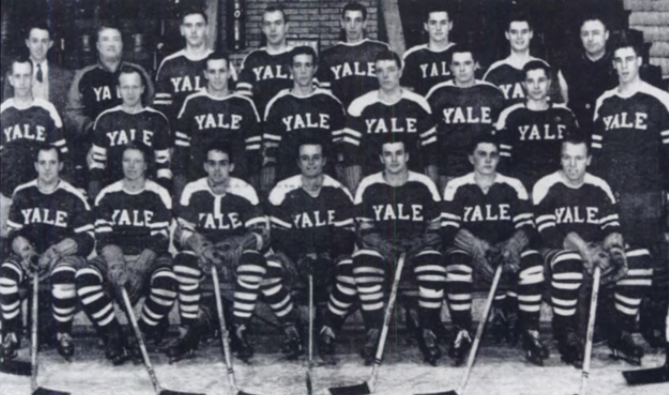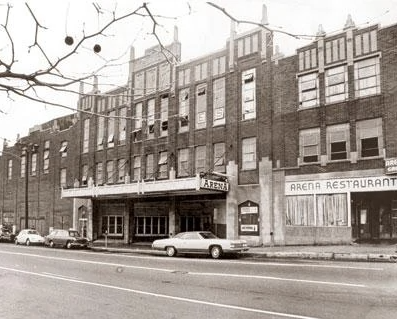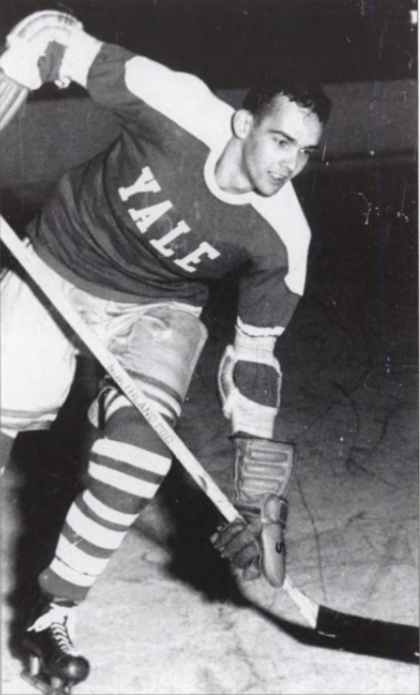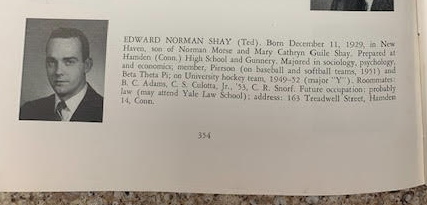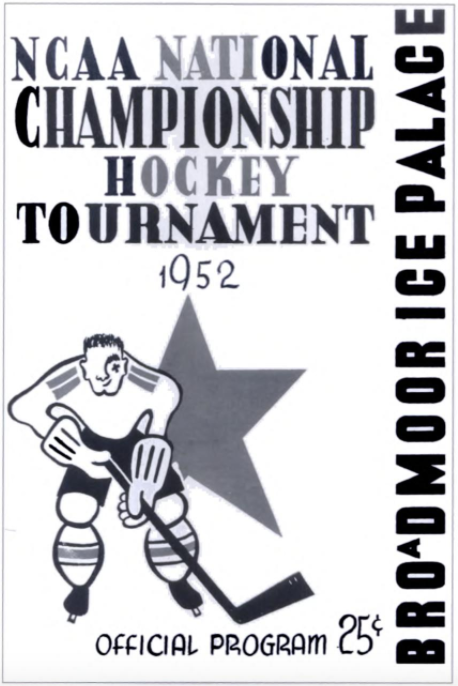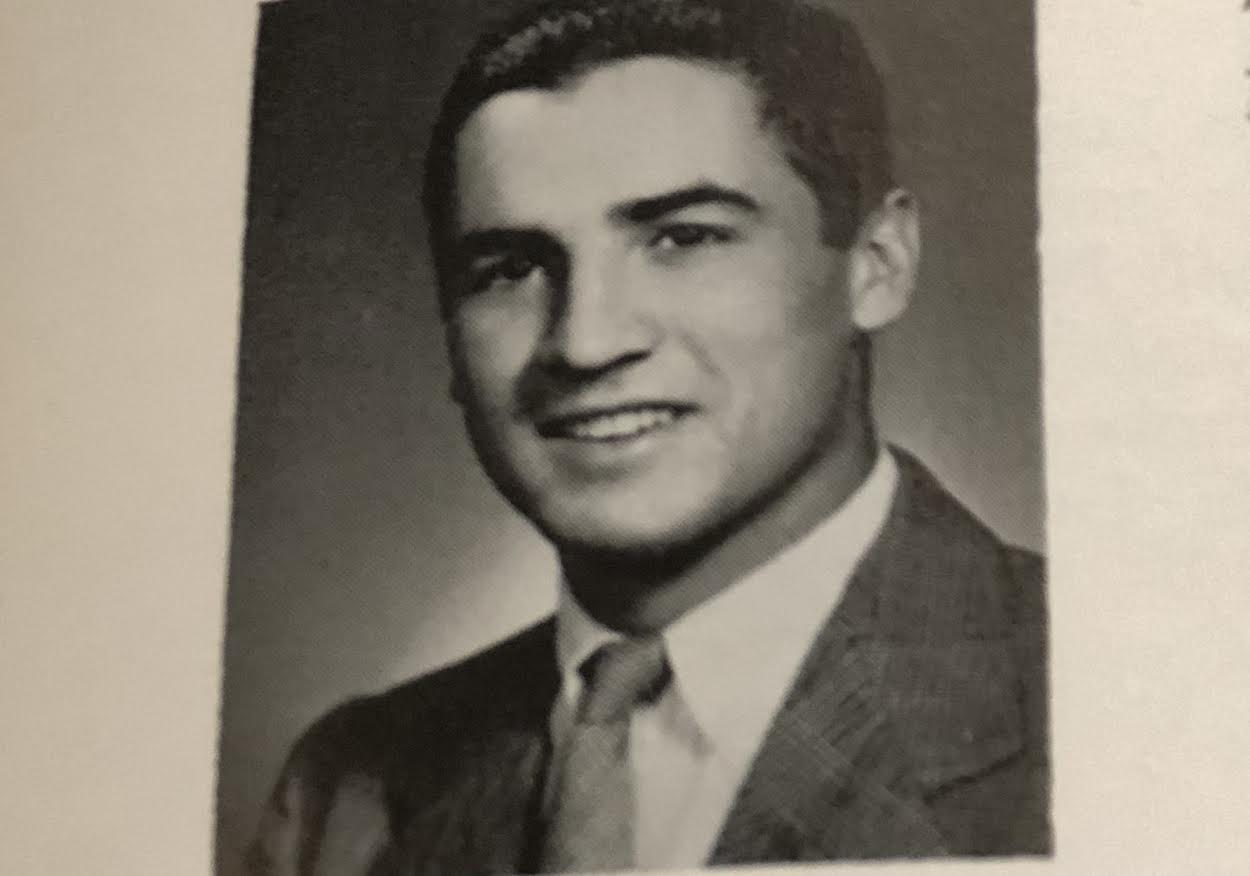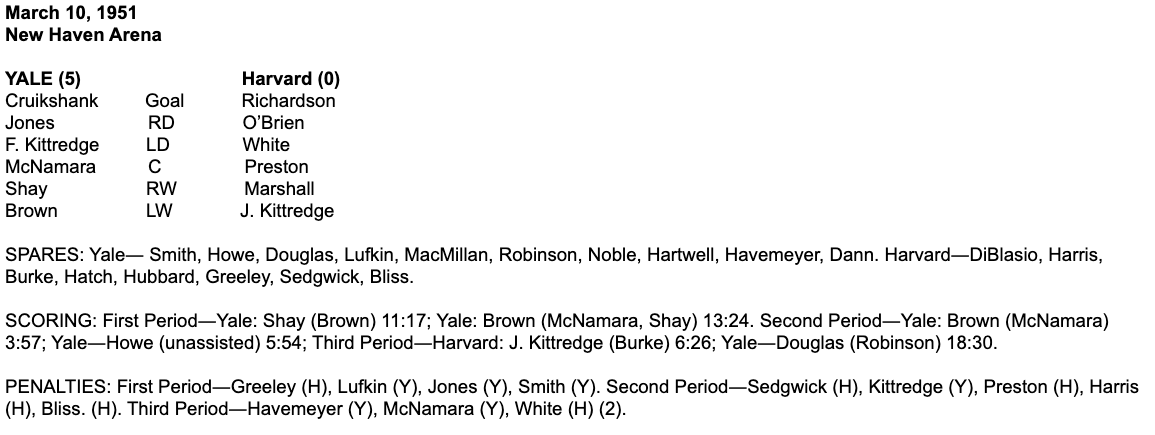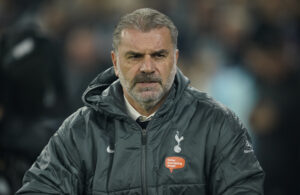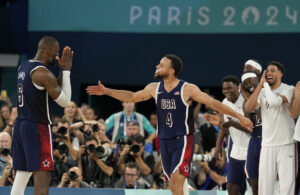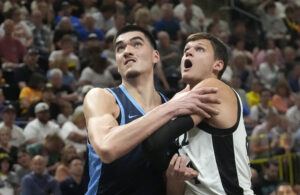- Attacking style not the only reason some Tottenham fans will back Ange Postecoglou until the bitter endPosted 5 months ago
- Paris Olympics takeaways: What did Team USA’s crunch-time lineup say about NBA’s hierarchy?Posted 10 months ago
- Zach Edey posted an easy double-double in Summer League debut. Here’s why he’ll succeed in NBAPosted 11 months ago
- What will we most remember these champion Boston Celtics for?Posted 12 months ago
- After long, seven-year road filled with excruciating losses, Celtics’ coast to NBA title felt ‘surreal’Posted 12 months ago
- South Florida men’s basketball is on an unbelievable heater– but also still on the bubblePosted 1 year ago
- Kobe Bufkin is balling out for Atlanta Hawks’ G League team. When will he be called up to NBA?Posted 1 year ago
- Former Knicks guards Immanuel Quickley, RJ Barrett may yet prove Raptors won the OG Anunoby tradePosted 1 year ago
- Rebounding savant Oscar Tshiebwe finally gets NBA chance he’s deserved for yearsPosted 1 year ago
- Is Tyrese Maxey vs. Tyrese Haliburton the next great NBA guard rivalry?Posted 2 years ago
Tom McNamara, Yale hockey captain in 1951, has died of coronavirus 14 years after Ted Shay, his college and high school teammate
- Updated: October 24, 2020
By Joel Alderman
There has been another coronavirus-caused death of a former college athlete and the first on the list we are tracking whose sport was hockey. Tom McNamara, who graduated from Yale in 1951, is the second athlete from that Ivy League university to succumb to Covid-19. The other, as reported in a previous article, was Harold Upjohn, who was on the basketball team and graduated a year before McNamara.
McNamara was a teammate in high school and college of Ted Shay, who died in April 2006. They were both born in New Haven, five days apart, and raised in adjoining Hamden CT. After high school, McNamara went immediately to Yale, while Shay spent a year as a post-grad at the Gunnery School, now known as the Frederick Gunn School, in Washington, CT.
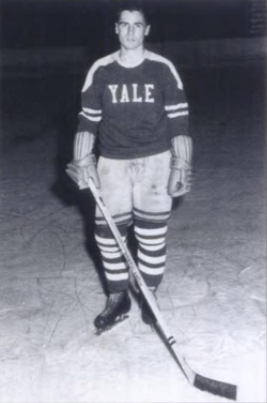
Tom McNamara was a prolific points scorer for the Bulldogs in helping lead some of Yale’s most successful teams.
Thomas Philip McNamara left Connecticut after law school and moved to Maryland. He last lived in Lutherville and died in a Baltimore hospital this year on May 1st at the age of 90.
McNamara captained a team that almost went to the NCAA
The 1950-51 sextet that he led finished 15-2-1, although the NCAA has it 14-2-1, discounting a contest against the Alumni team. Yale was not invited to the national tournament that started four years earlier. That was before the ECAC and the Ivy League existed, Yale was a member of the Pentagonal Hockey League and had a conference record of 5-2-1, finishing in second place, behind first-place Brown, which received the tournament bid.
It was McNamara’s last year and the Bulldogs were in contention for the postseason event until the third to last game when they lost to Harvard 4-0 in Cambridge.
A week later Yale won the return game 5-1 before 4,000 which packed the New Haven Arena, where Yale played its home games. The Ingalls Rink, to be known affectionately as the Yale Whale, did not open until 1958. Despite winning its final game, the dye had been cast and its season was over, but McNamara had a lot more to do with the sport.
In his three seasons playing for Yale, Tom had three hat tricks, two in his final year against Colgate and AIC and the first in that Alumni contest when he was a sophomore.
McNamara was Yale’s leading scorer in 1950-51 with 18 goals and 19 assists tor 37 points, one more than Shay with 36 (23-13). He was named to the All-Pentagonal League second team and the two were placed on the All-New England runner up squad. The year before the sophomore Shay collected 31 points and McNamara (junior) 28.
Murray Murdoch
Yale was coached by Murray Murdoch, the “iron man” of the original 1927 New York Rangers who played 508 consecutive games. He mentored the Bulldogs from 1938 to 1965. “He was the reason I came to Yale,” Shay told the late Bob Barton in the New Haven Register in 2000. “Murray could get out more of a kid than the kid had in him.”
Murdoch was reportedly a heavy smoker. But he still lived until two days shy of his 97th birthday.
Shay, the fellow Hamdenite, had hockey in his genes
Norm Shay was very familiar with the city of New Haven before his son went to Yale. He played with the New Haven Westminsters in 1926-1927 and in 1929-30 he was on the ice for the New Haven Eagles.
In 1943 when his playing career was over Norm Shay became coach of a new team in the Eastern Amateur Hockey League in, of all places, New Haven. He even owned and ran a sporting goods store in downtown New Haven.
Shay, McNamara, and Johnny Hartwell were on the same line in 50-51. Ted Shay played with McNamara at Hamden H.S. before going to Gunnery where he played football, baseball, and of course hockey. He was the son of Normand (Norm) Shay and Mary Guile Shay. Normand was from Canada and had a brief career in the National Hockey League for the Boston Bruins and the Toronto St. Pats between 1924 and 1926. It was during the time Murdoch was on the Rangers.
Ted Shay was born just five days before McNamara, also in New Haven. They graduated together from Hamden High School. After turning down a congressional appointment to West Point and spending a year at Gunnery, he joined his high school teammate at Yale.
At Hamden, they were coached by the venerable Don McNeil and competed in the 1947 New England High School tournament. Once he entered Yale, playing at 6-1, 185 lbs., Shay led his freshman team to an undefeated 10-game season. The Yale first-years were coached by the same Don McNeil.
Shay on Yale’s first tournament team
After graduation in 1952, Shay was an artillery officer in the U.S. Army and was awarded a bronze star. He was stationed in Japan alongside ex-Yale teammate Harry Havemeyer, an offspring of a prominent New York family. Havemeyer was to captain the ’52 team when he and Shay got to play in Yale’s first NCAA tournament.
Only four teams got to participate in the event. On March 14, 1952, Yale faced hometown Colorado College at the Broadmoor resort in Colorado Springs. Playing at an elevation of 6,000 feet, the Bulldogs took an early first-period lead. with Shay’s goal making it 3-0. The Bulldogs were still in front, 3-2, going into the third. Then a 35-foot screenshot and a 55-foot slap with less than five minutes to go left Yale with a heartbreaking 4-3 loss. Another former Hamden teammate, Bruce Adams, was Yale’s backup goaltender but did not play on the trip.
Paul Cruikshank the regular goaltender, had his two front teeth knocked out after taking a stick to the face against Colorado College. Masks and helmets were not allowed then, not even in college.
Shay was quoted by Barton that “the air was thin, and it really showed. We had an oxygen tank at our bench, and when we came off the trainer would let us take a couple of drags to restore our breathing. We always said that if we got (Colorado College) into the New Haven Arena with all the (cigarette) smoke, we’d beat them.”
Yale came back the next afternoon to win the third -place consolation game from St. Lawrence, 4-1. The two teams flew to the tournament on the same plane.
Upon discharge from the service Shay went to the University of Connecticut School of Law and the summer before he graduated, he was married. He was a practicing attorney in New Haven for over 40 years.
His wife, Joan Brereton Shay died two years ago.
McNamara was Yale’s leading scorer in 1950-51 with 18 goals and 19 assists tor 37 points, one more than Shay with 36 (23-13). He was named to the All-Pentagonal League second team and the two were placed on the All-New England runner up squad. The year before the sophomore Shay collected 31 points and McNamara (junior) 28.
Married, worked, and died in Baltimore
McNamara graduated from Yale in 1951 with a degree in engineering and, according to his class book, majored in industrial administration. Then he moved to Baltimore to take a job with the Koppers Company, a construction, chemical and engineering products firm.
Shortly after moving to Maryland, he met Betsy Podlick, and they were married in 1954. In his new surroundings Tom’s association with hockey continued. He played on club teams and later with a group of older men until he was 65. He also coached youth hockey in Baltimore, which involved driving travel teams as far as Cherry Hill NJ to play in the Delaware Valley League.
He worked at Koppers until he retired in the 1980s, soon before the company went out of business. Its unoccupied buildings were destroyed in a nine-alarm fire in 1986.
Thomas Philip McNamara was born in New Haven CT on Dec. 16, 1929, to Francis T. McNamara and Virginia (Davis) McNamara. He leaves three children, Sandra Haswell, Thomas McNamara, Jr., (Pasadena) and Robert McNamara (EIlicot City MD), and a sister, Nancy Bentley.
In retirement Tom was an avid golfer and played extensively at the Hunt Valley
Country Club in Phoenix MD, 22 miles from Baltimore.
His obituary notes that he also “loved to read and often had his head in a good mystery. Games of all types interested him: bridge, dirty eights, cribbage, gin rummy and assorted board games. He was always up for a game.”
Being always “up for a game” included that last one in a Yale hockey uniform when he finished his college career with a 5-1 win over arch-rival Harvard. It was and still is the way Yale athletes like to go out.

